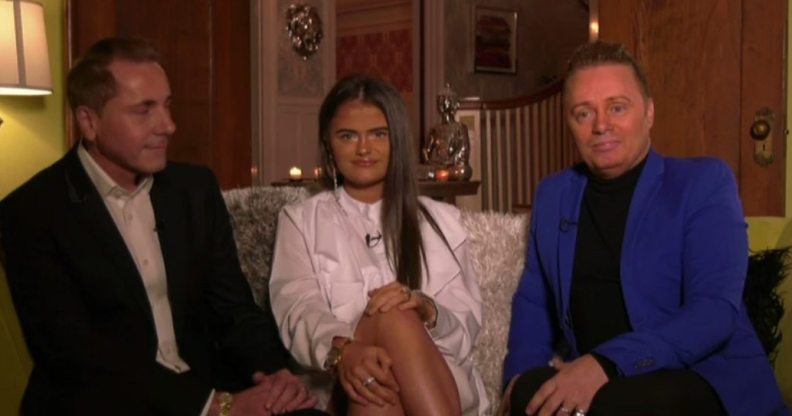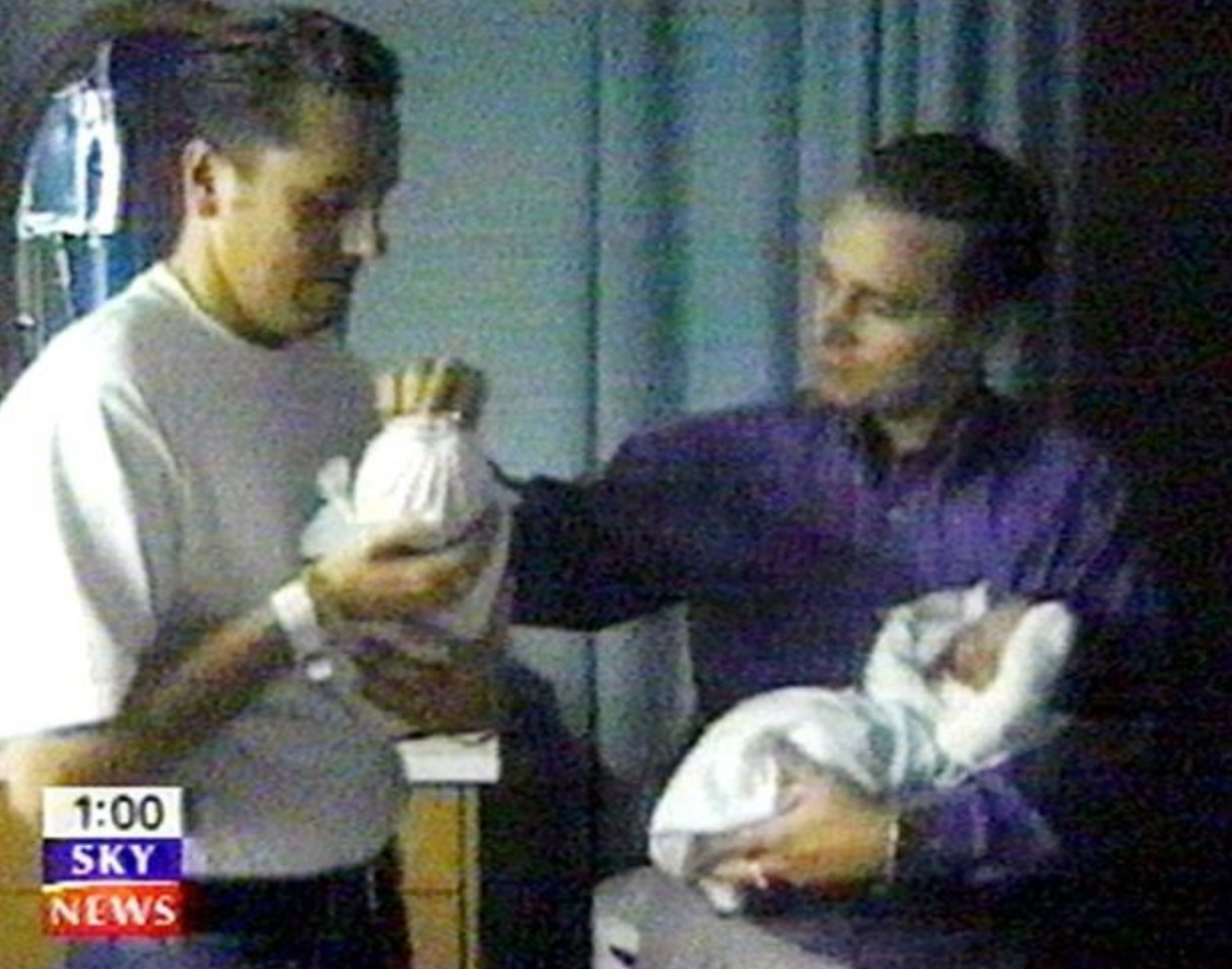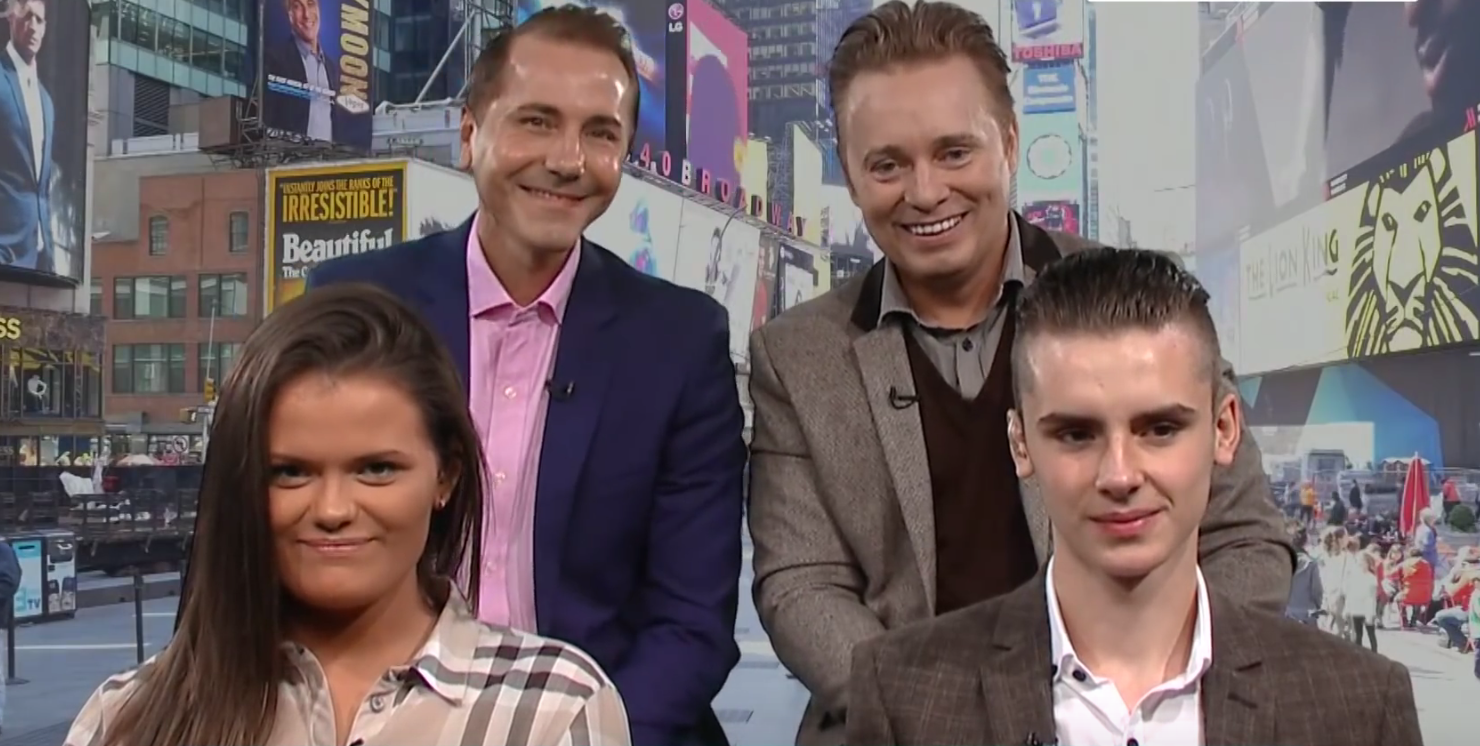Daddies’ little girl: gay dads face backlash online after revealing how much they spend on their daughter

(ITV)
A gay couple has come under fire online after they appeared on Good Morning Britain and revealed how much they spent on their daughter.
Barrie and Tony Drewitt-Barlow appeared on the British television show alongside their daughter, Saffron, who is one of five children the couple have had through surrogacy.

The 18-year-old and her twin brother Aspen helped their family hit the headlines when they were just babies as they were the first children in the UK to be registered as having two fathers.
Now, a debate is whirling around the family once more as the two millionaire fathers revealed how they indulge Saffron, Aspen, their 13-year-old Orlando and six-year-olds Jasper and Dallas.
With a £1 million wardrobe and a £5,000 a month allowance, it can be said that Saffron is more than accustomed to a luxurious lifestyle.
Her dad Tony explained: “I have an app on my phone and I get push alerts when she uses my credit cards and it’ll be ‘Harrods £50,000’, ‘£20,000 somewhere else’.”
However, Barrie insisted that they knew when to tone down the spending, especially when they visit family who are not used to the riches.

Read This: The Celebrities That You Didn’t Realise Are Gay
The two men have a combined wealth of £40 million from a number of businesses that they hold.
Many of those who watched the interview on This Morning were outraged by the way the fathers “spoiled” their children, with some people calling them “vulgar”.
One wrote: “Why are they proud that she spends so much on daddy’s credit card he gets over 30 notifications a day?! More money than sense.”
“I’m all for spoiling your kids but this is too far. Like she’ll think everything is handed to her when the rest of us have to work our asses off to even afford a decent holiday,” another said.
A third added: “‘People think i’m spoilt’ Yes you are!!! If £5k a month isn’t spoiled I don’t know what is.”

(Instagram)
However, the backlash came despite Saffron insisting that she would now look after herself since turning 18.
She has started her own make-up brand, with an investment from her parents, and will no longer receive her allowance from next month.
“From February, I’m not having that allowance anymore,” she said, adding that her business had sold 100,000 units in six days.
Barrie added that they were of course “proud” of their children but when the two of them pass away they will not be leaving their fortunes to them – rather making sure their millions go to charity.
He said: “We are incredibly proud of all our children, but we’ve told them we intend to leave a lot of our millions to charity as we want our children to get jobs and make their own way in life, just as we did.

“While we make no apologies for spoiling them, we have also taught them the value of money and we never let them forget where we came from.”
Related: British first: Babies can now be made from three parents in the UK
Barrie and Tony Drewitt-Barlow were leading voices in the fight for surrogacy rights in the UK.
Prior to a change in the law, it was a criminal offence to pay a surrogate mother more than ‘reasonable expenses’ or to advertise you are seeking a surrogate or are willing to act as one, meaning that many British gay couples were forced to travel to countries such as the US in order to use a professional agency.
Speaking about the need for a change in 2013, Barrie Drewitt-Barlow said: “The problem at the moment is there’s no legal structure in place for people going through the surrogacy route.
“Everybody might be really happy about Elton John and David Furnish having a surrogate, but would they all feel so euphoric if it was somebody like Gary Glitter, who’s a convicted paedophile?
“Of course they wouldn’t, but there’s nothing stopping him from doing it because the laws in this country don’t stop convicted paedophiles from using a surrogate.”
Mr Drewitt-Barlow added: “The sooner we can commercialise it here the better because we can put safeguards in place that not only look after the surrogate who’s having the baby and the egg donor, but we can also put stringent things in place to safeguard the welfare of the child.”
He concluded: “What I don’t want to see are the children born through surrogacy ending up in local social services care.”

